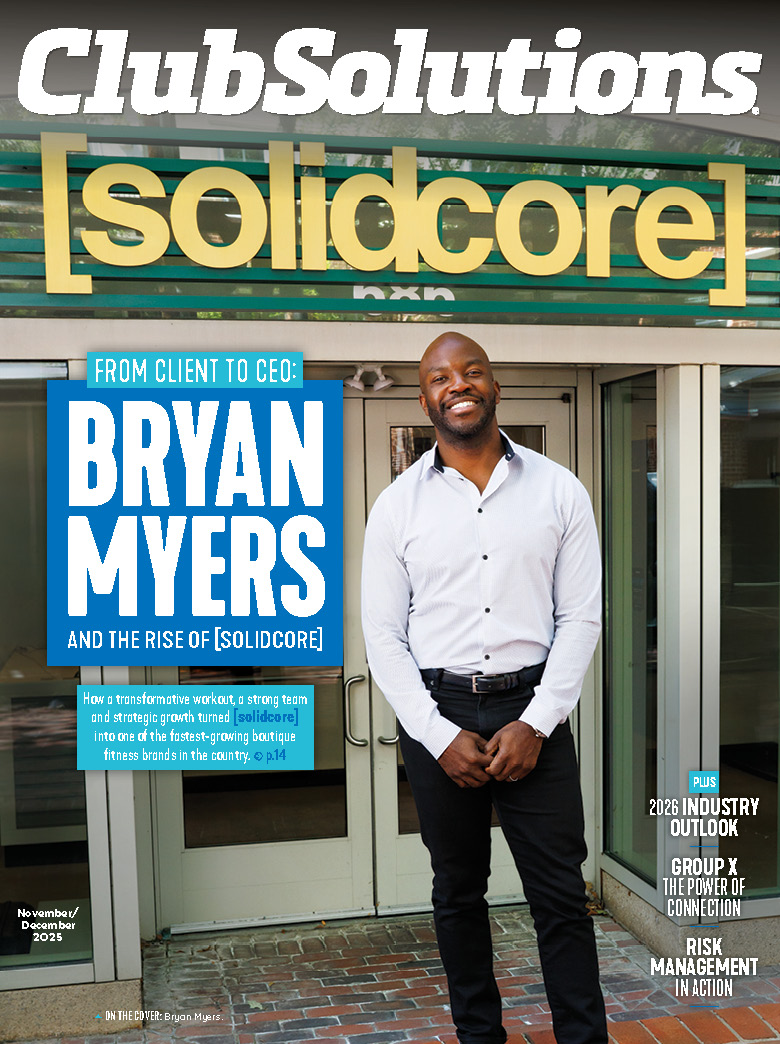A recap of the latest Thought Leaders panel, highlighting why content is king and how clubs can navigate marketing trends.
“One of the exciting things about the Internet is that anyone with a PC and a modem can publish whatever content they can create. In a sense, the Internet is the multimedia equivalent of the photocopier. It allows material to be duplicated at low cost, no matter the size of the audience.”
This expert from Bill Gate’s 1996 essay “Content is King,” still holds true 26 years later.
The internet is a vast land, allowing anyone to post whatever they wish — for free — at the click of a button. While a great resource, this does pose a challenge as a business trying to market a product. So how can you as a facility break through the noise and reach your targeted audience?
According to Hiba Abduljawad, the chief marketing officer at Fitness Ventures LLC and panelist on the latest Thought Leaders episode, the key is through your word choice.
“You know how there are superfoods like kale and cranberries? There are also super words,” said Abduljawad. “Power words. Words like ‘you,’ ‘now’ and ‘easy.’ These are all words we started using in our marketing messaging right after COVID-19 to really address the consumer on a different level. Adding personalization is becoming more and more important.”
Abduljawad and the rest of the panel — Donyel Cerceo, the marketing director at Merritt Clubs; Kory Angelin, a fitness executive and creator of the Powr Sales App; Jake McCabe, the vice president of marketing at Genesis Health Clubs; and Allison Rand, the vice president of marketing at YouFit — dove into a wide variety of topics including what marketing messages are proving effective for clubs.
At Merritt Clubs, Cerceo said it’s all about flexible memberships.
“We’re shifting away from committed membership and really pushing month to month memberships because people have a fear of commitment right now,” said Cerceo. “They don’t know when that [COVID-19] spike is going to come, they don’t know when mask mandates are going to come back. They just don’t want to be locked into a contract.”
Another popular marketing message topic right now is pushing the mental health benefits of exercise, however the panel warned operators should be sensitive when doing this.
“When it comes to mental health and wellness, it’s a very fine line,” explained Abduljawad. “You don’t want to come off as being an educator. It’s very risky. You need to use buzz words – things like, ‘relax and unwind with our yoga classes.’ Things that allude to mental health and wellness without educating people about it.”
While pushing this narrative is beneficial to members, it can be detrimental to your social media marketing reach. Facebook has been rejecting or flagging posts with certain mental health language.
To combat this, Cereco said they always post a study or research that backs their mental health messaging. Additionally, Angelin said partnering with a wellness company can help your message go further.
Marketing messaging isn’t the only thing that is evolving. The key players in the game are as well.
With the latest Apple iOS update allowing people to choose if their data is shared or not, Bing being the default search engine on Microsoft computers and TikTok exploding with growth over the last two years, clubs are approaching their marketing strategy with a different lens.
“Facebook, Instagram and Google have been king of the hill for years and years and years now, and it always felt like too many eggs in one basket,” said McCabe. “We’ve really seen TikTok emerge as a valuable paid medium. Not just organic, but actual paid ads.”
While technology and content look much different now than they did in 1996, they are still readily available and making a huge impact on consumers. While it can seem hard to keep up with the marketing trends, knowing your audience and sticking with what works for you is the best thing you can do.
“Keep it simple,” said Abduljawad. “Social media is king and will remain king for the foreseeable future.”










